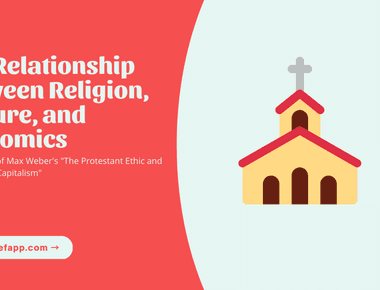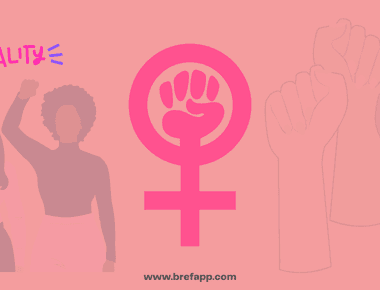
Conflict Theory: Definition, Principles, Applications, and Criticisms

Conflict theory is a sociological perspective that views society as a struggle for power and resources between groups with different interests, needs, and values. It suggests that social order is maintained by the dominant group’s ability to control and exploit subordinate groups, and that conflict and change are necessary for social progress. Conflict theory has a rich history in sociology, with roots in the works of Karl Marx, Max Weber, and other social theorists. Its contributions to understanding the dynamics of power, inequality, and social change have made it an essential perspective in contemporary sociology.
A. Definition of Conflict Theory
Conflict theory is a theoretical framework that views society as an arena of conflict and competition among individuals and groups with different interests and values. According to this perspective, social order is maintained by the dominant group’s ability to control and exploit subordinate groups. Conflict Theory emphasizes the role of power in shaping social relationships and institutions, and argues that social change occurs as a result of struggles between groups over resources, status, and authority.
B. Brief history of Conflict Theory
Conflict theory has its roots in the works of Karl Marx, who argued that class conflict was the driving force of social change. Marx saw society as divided into two main classes: the bourgeoisie, who owned the means of production, and the proletariat, who sold their labor for wages. He argued that the bourgeoisie’s exploitation of the proletariat would eventually lead to a revolution that would overthrow capitalism and establish a socialist society.
Max Weber, another influential social theorist, built on Marx’s ideas and developed the concept of social stratification, which refers to the division of society into different social classes based on factors such as wealth, income, and occupation. Weber argued that power, status, and prestige were key factors in determining an individual’s position in the social hierarchy.
In the mid-twentieth century, other sociologists, such as Ralf Dahrendorf and Lewis Coser, further developed Conflict Theory by emphasizing the role of conflict and competition in shaping social relationships and institutions.
C. Importance of Conflict Theory in Sociology
Conflict theory has been an important perspective in sociology because it highlights the ways in which power and inequality shape social relationships and institutions. It has been used to explain a wide range of social phenomena, including social stratification, gender and race relations, labor relations, and political conflict. Conflict theory has also been influential in inspiring social movements and advocating for social change. As such, it continues to be a vital framework for understanding contemporary social issues and for imagining alternative futures.
Basic principles of conflict theory
A. Assumptions of Conflict Theory
Conflict Theory is based on several key assumptions about the nature of society and social relationships. These include:
- Society is characterized by conflict and competition between groups with different interests, needs, and values.
- Power and inequality are key features of social relationships.
- Social change occurs as a result of struggles between groups over resources, status, and authority.
- Social institutions such as the government, the media, and the educational system serve to maintain the status quo and reinforce the interests of the dominant group.
B. Key concepts of conflict theory
Conflict Theory is based on several key concepts that help explain the dynamics of power, inequality, and social change. These include:
- Power Power refers to the ability of individuals or groups to control resources, make decisions, and impose their will on others. Power can be exercised through physical force, economic resources, or social status. Conflict Theory emphasizes the importance of power in shaping social relationships and institutions, and argues that power is unequally distributed in society.
- Dominance Dominance refers to the ability of one group to impose its will on another group. Dominant groups typically have more power, wealth, and social status than subordinate groups, and are able to use this power to maintain their position of dominance. Conflict theory argues that dominant groups maintain their position through the use of force, coercion, and other forms of control.
- Inequality Inequality refers to the unequal distribution of resources, opportunities, and rewards in society. Conflict Theory emphasizes the role of power in creating and maintaining inequality, and argues that social change occurs as a result of struggles between groups over resources and status.
- Exploitation Exploitation refers to the process by which one group benefits at the expense of another group. Conflict theory argues that dominant groups exploit subordinate groups by using their power to control resources and limit opportunities.
- Social change Social change refers to changes in social relationships, institutions, and cultural norms over time. Conflict theory argues that social change occurs as a result of struggles between groups over resources, status, and authority. These struggles can take many forms, including protests, strikes, and revolutions. Conflict Theory also emphasizes the importance of social movements and collective action in bringing about social change.
Major contributors to conflict theory
A. Karl Marx
Karl Marx is considered one of the founders of conflict theory. He believed that class conflict was the driving force of social change, and that social order was maintained by the dominant group’s ability to control and exploit subordinate groups. Marx argued that capitalism created a fundamental conflict between the bourgeoisie, who owned the means of production, and the proletariat, who sold their labor for wages. He believed that the exploitation of the proletariat would eventually lead to a revolution that would overthrow capitalism and establish a socialist society.
B. Max Weber
Max Weber is another influential contributor to Conflict Theory. Weber focused on the role of power and authority in shaping social relationships and institutions. He argued that power was not just based on economic factors, but also on factors such as status and prestige. Weber’s concept of social stratification, which refers to the division of society into different social classes based on factors such as wealth, income, and occupation, is also an important concept in Conflict Theory.
C. Ralf Dahrendorf
Ralf Dahrendorf was a German sociologist who built on the ideas of Marx and Weber. He argued that society was characterized by conflict and competition between different groups, including social classes, ethnic groups, and political groups. Dahrendorf emphasized the role of power in shaping social relationships and institutions, and argued that social change occurred as a result of struggles between groups over resources, status, and authority.
D. Lewis Coser
Lewis Coser was an American sociologist who focused on the role of conflict and competition in social relationships. He argued that conflict was not necessarily harmful, and could in fact be a positive force for social change. Coser’s work emphasized the importance of social norms and institutions in mediating conflict, and argued that conflict was a necessary aspect of social life.
These major contributors to Conflict Theory have shaped the field of sociology by highlighting the ways in which power, inequality, and conflict shape social relationships and institutions. Their work has been influential in understanding contemporary social issues and imagining alternative futures.
Applications of conflict theory
A. Inequality and social stratification
er and economic resources, and that social classes are defined by their relationship to the means of production. Conflict theory has been used to explain how economic inequality is maintained through the use of political power and institutionalized discrimination.
B. Gender and race relations
Conflict theory has also beeConflict theory has been applied to the study of social inequality and social stratification. It argues that social stratification is based on pown applied to the study of gender and race relations. It argues that social inequality and discrimination are the result of power differentials between dominant and subordinate groups. Conflict theory has been used to explain how gender and race-based discrimination are maintained through social institutions and cultural norms.
C. Labor relations and class conflict
Conflict theory has been applied to the study of labor relations and class conflict. He argues that the relationship between labor and capital is characterized by conflict, as workers seek to maximize their wages and benefits, while capitalists seek to maximize profits. Conflict theory has been used to explain how class-based conflict has led to the formation of labor unions and the emergence of worker movements.
D. Political conflict and revolutions
Conflict theory has also been applied to the study of political conflict and revolutions. It argues that political conflict arises from power differentials between different groups, and that revolutions occur when subordinate groups are able to mobilize and challenge the power of dominant groups. Conflict theory has been used to explain the causes and outcomes of social and political revolutions, including the French Revolution, the Russian Revolution, and the Civil Rights Movement in the United States.
Conflict theory provides a useful framework for understanding the role of power and conflict in shaping social relationships and institutions, and has been applied to a wide range of social phenomena. Its emphasis on inequality and exploitation has helped to inform social policies aimed at reducing economic and social disparities, and has contributed to a greater understanding of the ways in which social change occurs.
Criticisms of Conflict Theory
A. Overemphasis on conflict and power
One criticism of Conflict Theory is that it overemphasizes conflict and power dynamics in social relationships, neglecting other factors such as cooperation, consensus, and shared values. This can lead to a narrow and overly pessimistic view of human nature and social relationships.
B. Limited explanatory power
Another criticism of conflict theory is that it has limited explanatory power in certain contexts, particularly those that do not involve overt conflict or where social relationships are more complex than simple power dynamics. For example, Conflict Theory may struggle to explain social phenomena that are based on cooperation and mutual benefit, such as social networks or communities of practice.
A related criticism of conflict theory is that it tends to focus exclusively on the negative aspects of social relationships, such as confC. Lack of attention to social cooperation
lict and exploitation, and overlooks the positive aspects of social cooperation and collaboration. This can lead to a one-sided view of social relationships that neglects the importance of shared values, social norms, and institutions in promoting social order and stability.
Despite these criticisms, Conflict Theory remains a valuable tool for understanding the role of power and conflict in shaping social relationships and institutions. While it may have its limitations, it has contributed to a greater understanding of social inequality and exploitation, and has helped to inform social policies aimed at promoting greater equality and social justice.
FinalThoughts
A. Summary of key points
Conflict theory is a sociological perspective that emphasizes the role of power and conflict in shaping social relationships and institutions. It is based on the assumption that social inequality and exploitation are the result of power differentials between dominant and subordinate groups. Conflict theory has been applied to a wide range of social phenomena, including social stratification, gender and race relations, labor relations and class conflict, and political conflict and revolutions. Major contributors to Conflict Theory include Karl Marx, Max Weber, Ralf Dahrendorf, and Lewis Coser.
B. Significance of conflict theory in contemporary society
Conflict theory remains a significant perspective in contemporary society, as it provides a useful framework for understanding the ways in which power and conflict shape social relationships and institutions. It has informed social policies aimed at reducing economic and social disparities, and has contributed to a greater understanding of the ways in which social change occurs. Conflict Theory also has implications for contemporary issues such as economic inequality, political polarization, and social justice.
C. Future directions for conflict theory research
Future research in conflict theory may focus on expanding its explanatory power to account for more complex social relationships, and exploring the role of positive social interactions such as cooperation and collaboration in shaping social order and stability. It may also examine the implications of new forms of power, such as those enabled by technology and the internet, for social relationships and institutions. Additionally, Conflict Theory may continue to inform social policies aimed at promoting greater equality and social justice, and help to address pressing social issues in contemporary society.
Tags
Related Posts

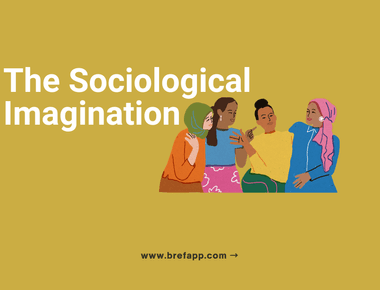
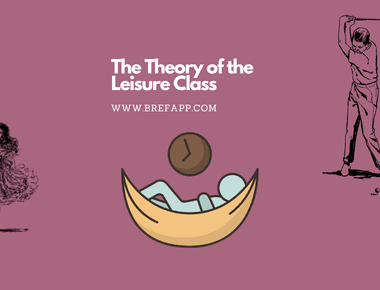

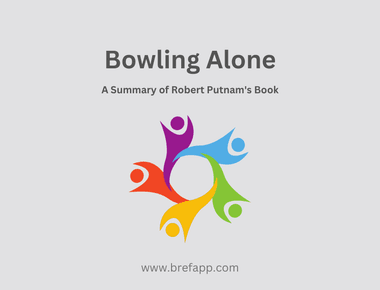
Quick Links
Categories

